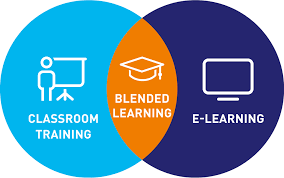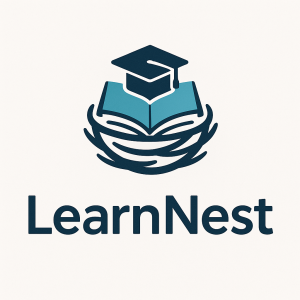- Teacher: Laureen Kibichii
- Teacher: Orina Makori
- Teacher: Odel Trainer
learnnest.gnomio.com
-
Welcome to your new Gnomio site
Now, you are in control!
Moodle is an open-source Learning Management System (LMS) that provides educators with the tools and features to create and manage online courses. It allows educators to organize course materials, create quizzes and assignments, host discussion forums, and track student progress. Moodle is highly flexible and can be customized to meet the specific needs of different institutions and learning environments.
Moodle supports both synchronous and asynchronous learning environments, enabling educators to host live webinars, video conferences, and chat sessions, as well as providing a variety of tools that support self-paced learning, including videos, interactive quizzes, and discussion forums. The platform also integrates with other tools and systems, such as Google Apps and plagiarism detection software, to provide a seamless learning experience.
Moodle is widely used in educational institutions, including universities, K-12 schools, and corporate training programs. It is well-suited to online and blended learning environments and distance education programs. Additionally, Moodle's accessibility features make it a popular choice for learners with disabilities, ensuring that courses are inclusive and accessible to all learners.
The Moodle community is an active group of users, developers, and educators who contribute to the platform's development and improvement. The community provides support, resources, and documentation for users, as well as a forum for sharing ideas and best practices. Moodle releases regular updates and improvements, ensuring that the platform remains up-to-date with the latest technologies and best practices.
Links of interest:
(You can edit or remove this text)
Available courses

Course Summary: Educational Technology
This course explores the effective integration of technology in teaching and learning environments. Students will examine a range of digital tools, platforms, and strategies used to enhance instruction, engagement, and assessment. Key topics include instructional design, multimedia learning, online and blended learning models, digital literacy, and the ethical use of technology in education. Through hands-on projects and critical analysis, students will develop the skills to design, implement, and evaluate technology-enhanced educational experiences that support diverse learners in both traditional and virtual classrooms.
- Teacher: Laureen Kibichii
- Teacher: Orina Makori
- Teacher: Odel Trainer

Course Summary: Food and Beverage Service Management
This course provides students with a comprehensive understanding of the principles and practices involved in managing food and beverage operations within the hospitality industry. Key topics include service styles, menu planning, cost control, staff management, customer service, hygiene and safety standards, and the integration of technology in service delivery. Through a combination of theoretical knowledge and practical application, students will develop the skills necessary to effectively oversee day-to-day operations, enhance customer satisfaction, and drive profitability in various food and beverage service settings, including restaurants, hotels, and catering businesses.
- Teacher: Laureen Kibichii
- Teacher: Orina Makori
- Teacher: Odel Trainer

Course Title: Flexible and Blended Learning
Course Summary:
This course explores the principles, strategies, and technologies behind flexible and blended learning environments. Designed for educators, instructional designers, and education leaders, it provides a comprehensive understanding of how to effectively combine face-to-face instruction with online learning experiences to enhance student engagement, accessibility, and achievement.
Participants will examine various blended learning models, explore digital tools and platforms, and develop skills to design, implement, and evaluate blended learning experiences. Emphasis is placed on learner-centered approaches, instructional flexibility, and inclusive practices to meet diverse learner needs in both formal and informal educational settings.
By the end of the course, participants will be able to:
-
Differentiate between flexible, blended, and online learning modalities.
-
Apply instructional design principles for blended learning.
-
Integrate digital technologies to support interactive and collaborative learning.
-
Develop flexible learning strategies to accommodate diverse learners.
-
Evaluate the effectiveness of blended learning environments.
The course includes interactive modules, case studies, collaborative projects, and opportunities for practical application, making it ideal for professionals looking to innovate and adapt in today's evolving educational landscape.
- Teacher: Laureen Kibichii
- Teacher: Orina Makori
- Teacher: Odel Trainer
Skip site announcements
